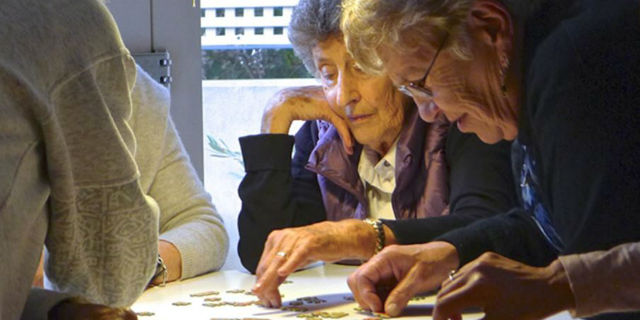Successful ARC Discovery Project

We would like to congratulate the team below on their successful application for an ARC Discovery Project. Many are also members of the Hallmark Ageing Research Initiative and/or Master of Ageing Steering Committees and/or involved in teaching subjects in the Master of Ageing course.
Ageing Bodies and Embodied Interactions: Creating Social Inclusion through Mediated Presence
Project team:
- Professor Frank Vetere, Department of Computing & Information Systems, The University of Melbourne
- Dr Jenny Waycott, Department of Computing & Information Systems, The University of Melbourne
- Dr Jenni Warburton, John Richards Chair in Rural Aged Care Research, La Trobe University
- Dr Thuong Hoang, Department of Computing & Information Systems, The University of Melbourne
- Professor Elizabeth Ozanne, Department of Social Work, University of Melbourne*
- Associate Professor Briony Dow, National Ageing Research Institute
About the project:
The social inclusion of older adults is vitally important in today’s ageing society. Older people who have access to meaningful social networks and who actively participate in community or group activities benefit from enhanced wellbeing and a stronger sense of purpose, enabling them to live a full and active life for longer. As people approach advanced old age, however, their opportunities to engage in these activities often diminish. Increasing frailty and deteriorating health can impair mobility, keeping people confined to their homes. For some, the stigma surrounding the ageing body makes them reluctant to join face-to-face social groups. Other constraints, such as living in a rural location or caring for a spouse with dementia who cannot be left alone, can leave people housebound with few opportunities to engage in local community activities.
This research will create knowledge about the design of technologies to facilitate older people’s active social participation. The project will integrate understanding about ageing bodies, embodied interactions, mediated presence, and social inclusion, to inform the ethical and participatory design of a technological intervention. The technological intervention will make use of tracking sensors available in consumer technologies (such as the Microsoft Kinect) to build software that represents bodily movements through virtual avatars. The technology will be trialled with small groups of older adults in both urban and rural settings, with the aim of creating a sense of presence between people who are not physically together.